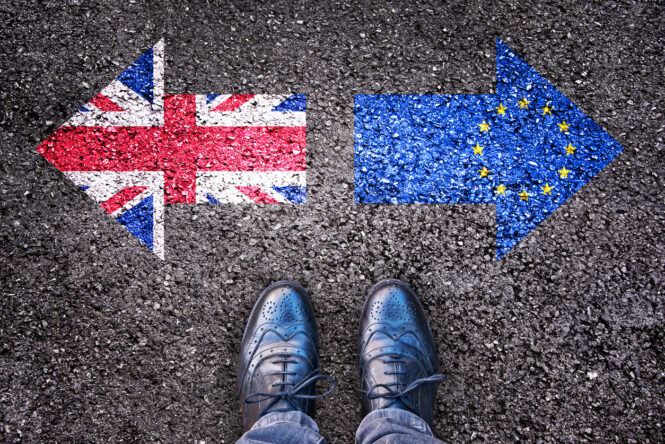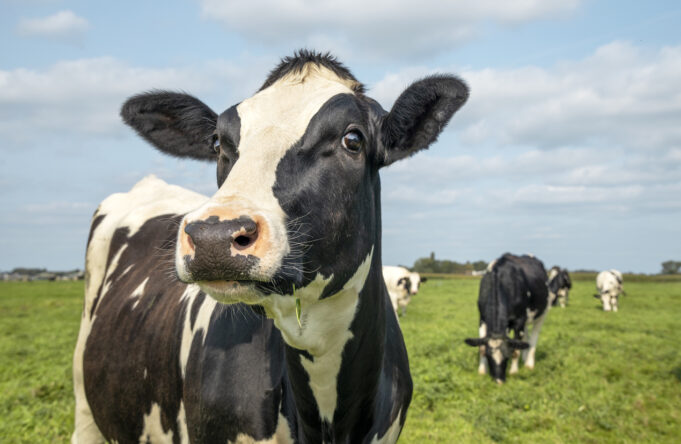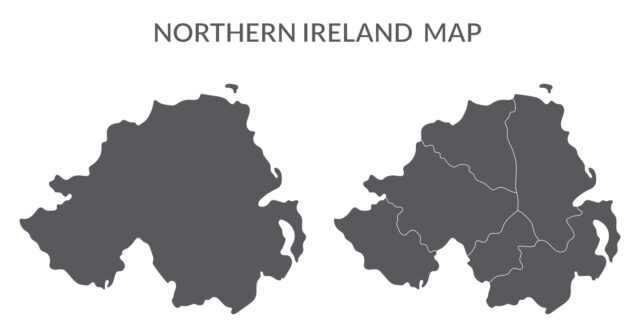It was meant to bring more independence, fewer rules, and a stronger sense of national control.

At least that’s what we were told by Nigel Farage and his cronies (don’t forget the £350 million for the NHS!). For most people, however—even those who initially supported the decision to leave the EU—Brexit has delivered more frustration than freedom. From travel headaches to supply chain issues, these are the real-world consequences that are quietly making life in the UK harder—not better.
1. Holiday travel has become more of a hassle.

Hopping over to Europe used to be as simple as booking a flight and packing your bag. No visa requirements, no lengthy border delays, and no limits on how long you could stay. But since Brexit, UK travellers are finding that their EU holidays now come with more red tape and a lot less flexibility.
You’re now subject to entry restrictions, passport validity rules, and time limits that didn’t exist before. The 90/180-day rule means you can’t just decide to spend a few months in France or Italy without extra planning. What used to feel like freedom of movement now feels like being boxed in—and queues at border control have only added to the stress.
2. Moving or working abroad is far more complicated.

One of the biggest perks of being in the EU was the ability to live and work across 27 countries without applying for visas or proving eligibility. That freedom is gone. Now, anyone wanting to move to Europe has to deal with immigration systems that are often complex, time-consuming, and costly to navigate.
From artists to hospitality workers to remote employees, many people have found their options shrinking. Some doors are still open, but they take more time, more paperwork, and a lot more patience. For younger people especially, the idea of a spontaneous job abroad or a gap year in Europe now comes with real limitations.
3. Prices at the supermarket have crept up.

While inflation and global events have also played a role, Brexit’s impact on food prices is hard to ignore. Imports from the EU now come with added costs—customs checks, transport delays, and new administrative requirements. All of that ends up being passed along to the consumer.
Even everyday basics like cheese, olive oil, or salad ingredients have become noticeably more expensive. Some smaller EU-based food brands have pulled out of the UK market altogether, leaving fewer choices and higher prices. Over time, that “just a few pence more” adds up at the checkout.
4. Small businesses are drowning in red tape.

For small UK businesses that once traded easily with the EU, the new post-Brexit reality means more paperwork, more fees, and more frustration. What used to be a straightforward process has become layered with customs declarations, VAT challenges, and logistics that eat into time and profits. London alone has suffered a £140 billion revenue loss thanks toe Brexit, so that should tell you something.
Some have had to hire consultants just to make sense of it all. Others have given up on international trade altogether. It’s especially tough for independent sellers and creative startups who built their businesses around seamless EU access. Now, growth feels less achievable and more like a constant uphill battle.
5. European staff shortages are impacting UK industries.

Hospitality, farming, healthcare, and transport—these industries all leaned heavily on EU workers. Since Brexit, that pool of labour has dried up, and businesses are feeling the pinch. Recruitment gaps have led to slower service, longer waiting times, and in some cases, reduced operating hours.
In care homes, understaffing has become a crisis. In restaurants, menus have been trimmed to make do with fewer kitchen hands. It’s not that UK workers won’t do these jobs—it’s that there simply aren’t enough of them, and the red tape now involved in hiring from abroad has made it harder to fill the gaps quickly or affordably.
6. Touring musicians and performers are facing extra costs.

The UK music scene has long relied on touring across Europe as a key part of building a career. But now, artists are facing increased costs for visas, transport permits, and equipment declarations—often in every country they visit. For smaller or independent acts, that added financial strain can be make-or-break.
Many have cancelled tours or scaled back to a handful of cities, meaning less exposure and fewer opportunities to connect with European fans. It’s also made it harder for UK artists to compete internationally. What was once a major cultural export now feels like it’s stuck in customs, both literally and figuratively.
7. Farmers are dealing with uncertainty and extra strain.

Brexit promised more support for UK farmers—but many are still waiting to feel the benefits. In the meantime, they’re grappling with disrupted exports, labour shortages, and the end of the EU subsidy system, which provided a consistent lifeline for years.
Some types of farming—especially those that rely on fresh produce exports—have been hit harder than others. Delays at ports, unpredictable trade rules, and higher shipping costs make it tougher to remain competitive. For many rural areas, the ripple effect has been significant, affecting not just farms but the wider local economy.
8. Northern Ireland’s situation remains tense and unclear.

The Northern Ireland Protocol was meant to keep trade flowing while avoiding a hard border with the Republic of Ireland—but it’s created a complicated and often frustrating new dynamic. Goods moving between Northern Ireland and the rest of the UK now face checks, leading to confusion and delays for businesses.
The political tensions have deepened, with some feeling disconnected from the rest of the UK, while others feel tied to EU rules they didn’t vote for. It’s created a sense of limbo that still hasn’t fully settled—and for many in Northern Ireland, the Brexit fallout feels far from over.
9. The value of the pound has been shaky.

Since the referendum in 2016, the pound has faced periods of volatility and pressure. While it hasn’t completely collapsed, it hasn’t returned to its former strength either—and that has a ripple effect on everything from holidays to imported electronics.
A weaker pound means higher costs for goods brought in from abroad, especially those priced in dollars or euros. It also reduces spending power for Brits travelling overseas. Even if the fluctuations don’t feel massive day to day, the long-term impact adds up, especially when combined with broader economic strain.
10. British students lost access to the Erasmus programme.

The Erasmus exchange programme gave thousands of UK students the chance to study and work across Europe with ease. Since leaving the EU, British students no longer have access to it, and while the UK introduced the Turing Scheme as a replacement, it hasn’t fully replicated the experience or opportunities.
Erasmus provided structured, funded pathways to partner universities and placements across Europe. The newer alternative offers less cultural exchange and fewer longstanding institutional connections. For students looking to broaden their horizons, especially from lower-income backgrounds, it’s a missed opportunity that’s hard to replace.
11. Pet travel has become more complicated.

Bringing your dog or cat on holiday used to be easy thanks to the EU pet passport scheme. Now, pet owners have to navigate stricter entry requirements, including new health certificates and tighter timeframes for vaccines and treatments.
It’s added layers of admin, extra vet costs, and more planning. For people who regularly travelled with their pets—whether to visit family abroad or just for long stays—it’s turned a straightforward process into something much more stressful. It might seem minor, but for pet-loving households, it’s another quality-of-life downgrade.
12. Cross-border relationships face more strain.

For couples living between the UK and EU, Brexit has added pressure. From visa restrictions to limitations on shared healthcare access or freedom of movement, many binational families have found themselves jumping through legal hoops just to stay together.
What once felt easy—visiting family, working across borders, or relocating together—is now layered with uncertainty and paperwork. In some cases, couples have had to make difficult decisions about where to live based not on preference, but on what’s legally and financially viable. It’s a deeply personal cost of political change that doesn’t always make the headlines—but has changed lives all the same.




